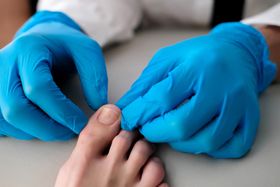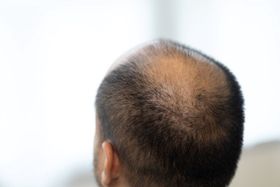The Dangers of Plaque in Your Arteries and What to Do About It
Published June 30, 2022.

We all know that poor dental hygiene can lead to the formation of plaque on our teeth, but there is another type of plaque that can also lead to health problems: arterial plaque.
Arterial plaque is made of fatty, waxy substances that build up in your arteries and form deposits in the artery walls. Your arteries have an important job: to carry nutrient-rich blood and oxygen from your heart throughout your body.
But when plaque has built up in your arteries, they are narrowed and your blood flow is reduced. Additionally, plaque can lead to blood clots and ruptured arteries. Since this can lead to a cut-off of blood, your body’s tissues can suffer greatly as it doesn’t receive oxygen or important nutrients.
Read on to learn about the causes, dangers, and treatments for arterial plaque.
What Causes Plaque in Your Arteries?
A buildup of plaque in our arteries is actually a very natural thing that happens to everyone. Unfortunately, even children and teenagers have shown evidence of plaque building up in their arteries. That being said, there are a few "normal" bad habits and lifestyle factors that encourage this build-up.
High blood pressure, smoking, and a high level of LDL ("bad") cholesterol can increase the rate at which plaque forms in your arteries. The toxins in tobacco damage the smooth inner lining of your arteries, which can lead to inflammation and cause cholesterol and other materials to embed themselves, forming plaque.
Sadly, some people are predisposed to this condition because they have unusually high levels of LDL cholesterol in their blood.
The Risk Factors of Plaque in Your Arteries
Although plaque can build up all throughout the body, not all of these formations are as dangerous or life-threatening as they sound. It is the vulnerable plaque that you have to worry about.
This type of plaque has a thin cap and is much more likely to rupture and cause a blood clot that can cut off blood flow and lead to a stroke or heart attack.
Heart attacks are the biggest risk factor for plaque buildup in your arteries, with strokes being a close second.
Plaque should not be taken lightly—if you have a buildup of plaque in your arteries, then there are several changes you need to make to your lifestyle.
Vitamins That Are Effective in Removing Plaque From Arteries
Fortunately, there are many ways to deal with plaque formation in your arteries. You can incorporate vitamins and supplements into your diet that could help clear the plaque and improve your health. Although even the best vitamins won’t get rid of the plaque completely, your body will benefit from consuming them.
Add the following vitamins and minerals to your diet if you want to get rid of arterial plaque:
- Vitamin D (carrots, mushrooms, soy milk)
- Omega-3 fatty acids (salmon, tuna, walnuts)
- Magnesium (whole grains, leafy vegetables, low-fat milk)
- Potassium (beans, lentils, avocado)
- Folic acid (peas, brussels sprouts, broccoli)
You may worry about how long it takes for vitamins to work, but your body will start to be healthier as soon as you change or improve your diet.
For specific products that encompass all the plaque-fighting vitamins and minerals you need, take a look at our Cholesterin and Bloodsyl supplements.
Can Arterial Plaque Be Removed Naturally?
Although you can adopt a healthier lifestyle and prevent the formation of plaque and help your body get rid of it, there is no natural way to actually remove it.
The only way you can really remove plaque from your arterial walls is through an invasive treatment—something that most of us would like to avoid. That is why it is best to live a healthy life with healthy habits to halt the formation of plaque and prevent any new buildups from happening.
You can lose weight, eat fewer foods that are high in cholesterol, and exercise more to help your body perform at its best and avoid plaque buildups.
If you ever needed valid reasons to take vitamin or mineral supplements, now you have a big one. Prevention is better than cure, and preventing a plaque buildup in your arteries is a lot better than trying to deal with it in the future.







